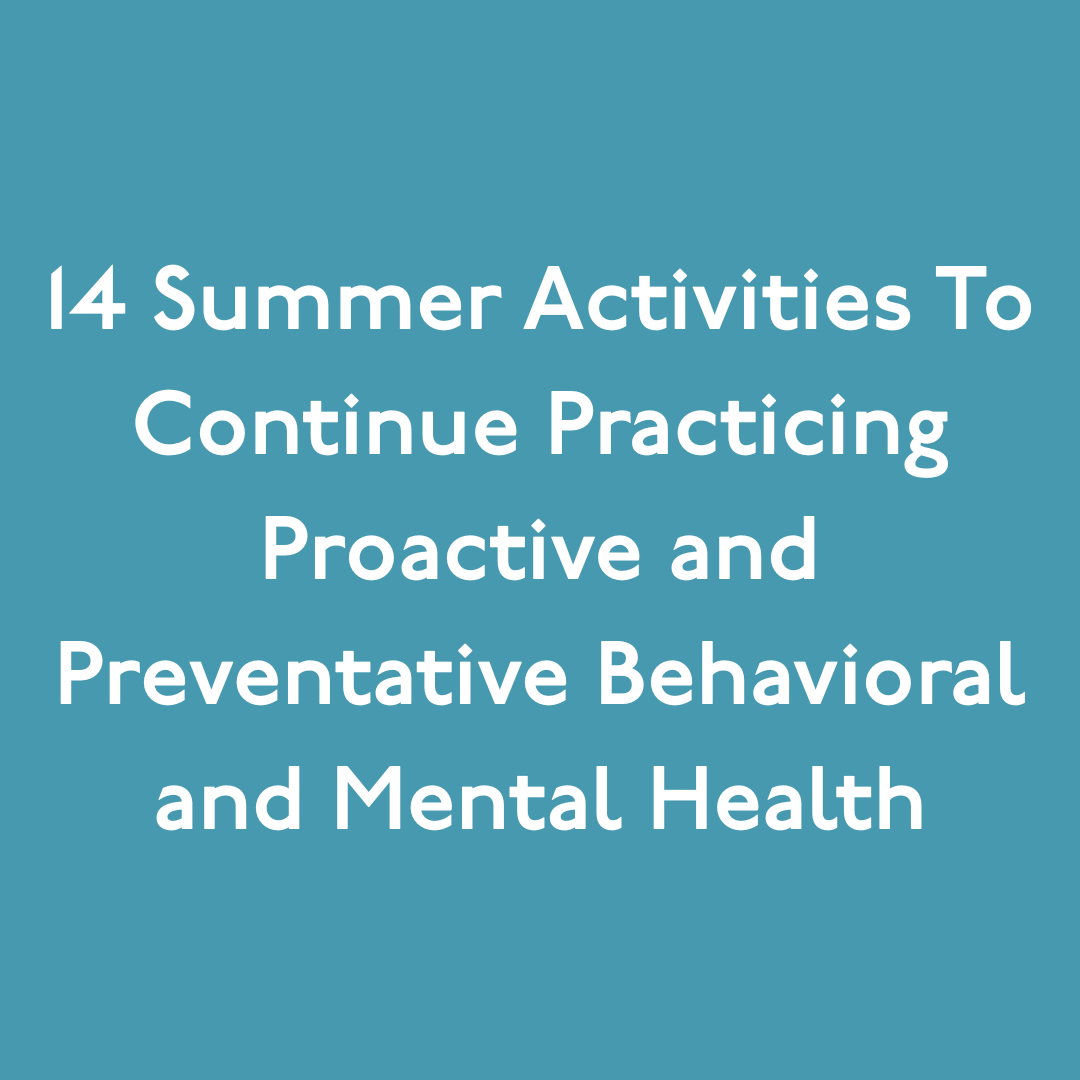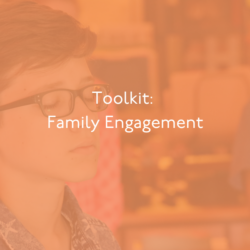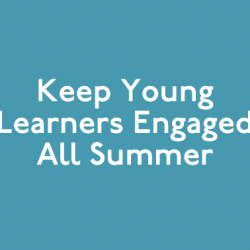With school out for summer vacation, students have hours of free time on their hands everyday – and some parents may be wondering how to fill it. This is their time to have fun and unwind, but that doesn’t mean social emotional learning has to stop. As social and emotional beings, every child, adolescent and adult can continuously choose to flex these important muscles. Avoid the dreaded “I’m bored” comments by trying out some of these fun activities and tasks that promote social emotional development.
-
Read. Create a cozy nook complete with pillows and read some new books with your child. Choose books that focus in on aspects of social emotional learning and discuss the issues after. Check out our list of picture books for some great options.
-
Go on a mindful walk. Ask your child to take account of what they sense as you walk around your town. Taking the time to determine what you see, smell, feel and hear will help ground you in the moment. Have students focus on using one of their senses at a time in order to help them narrow their focus.
-
Garden. Plant some flowers, vegetables, fruit or herbs and have them take ownership for taking care of it. Teach them to care for the plant and let them take the reigns. This will help them build a sense of motivation and confidence as they solve the problems that may come along with gardening.
-
Visit museums. Many museums offer free or discounted pricing, so take advantage of this to promote social emotional learning. You and your child can discover the differences between people and culture in order to build empathy by visiting a history museum or contemplate what emotions are being conjured in an art gallery.
-
Write a creative story. Allow your child to express themselves through words by giving them prompts and having them write a short response. Write about a favorite memory or make up a story about an epic adventure with friends.
-
Practice yoga. Incorporate a few minutes of yoga into your morning routine to prepare for the day, or at night to help relax. Let your child choose the poses as they get more accustomed to the flow. These videos can get you and your child started with yoga. https://www.youtube.com/watch?v=X655B4ISakg
-
Watch movies. Some days you’ll just want to relax and watch a movie – and that’s okay. Use this as an opportunity to discuss the social emotional aspects of whatever you watch and ask how the characters felt or how they dealt with challenges.
-
Make a scrapbook. Putting together a scrapbook is a great way for children to reflect on their favorite memories. Have them piece together images and pictures that represent the moments they are most proud of and add a caption or drawing that expresses how they felt.
-
Create a chore chart. The summer days can be hectic, so have your child create a chore chart for themselves to add some structure. They can observe the household and choose what they will be responsible for, allowing them to take ownership of their impact in their family community.
-
Cook or bake. Children love eating all sorts of things, so why not get them involved in making them. Practice teamwork and listening skills as you work together to prepare a delicious meal or dessert.
-
Volunteer. Get your child involved in the community at an early age by participating in a park clean up or visiting a nursing home. Starting civic engagement early will help them further develop empathy which will stay with them as they get older.
-
Paint and draw. No matter the medium, creating art is a great way to get in touch with emotions. Ask your child to draw what they are feeling or head outside to draw in nature.
-
Plan park playdates. Getting a group of children of the same age together to just play and spend time together is a simple but effective way to continue to develop social skills. Children will cultivate strong relationship skills as they listen, communicate and resolve conflicts with one another.
-
Make a vision board. Together, you and your child can determine what you want out of the coming school year. Maybe your child wants to meet new people or solidify their math skills. No matter the goal, visualize it and hang your board up so that you can refer back to it and discuss the progress at time goes on.
Sign up for Move This World’s newsletter to stay up to date on our social emotional learning programs.
Enter your email below










